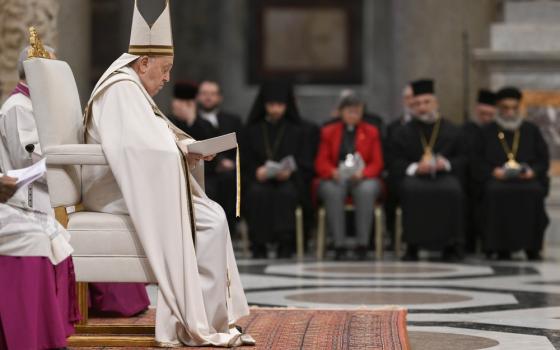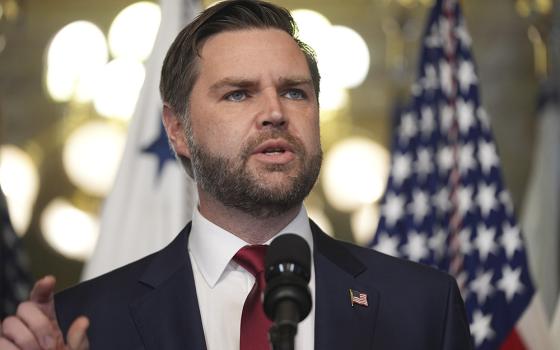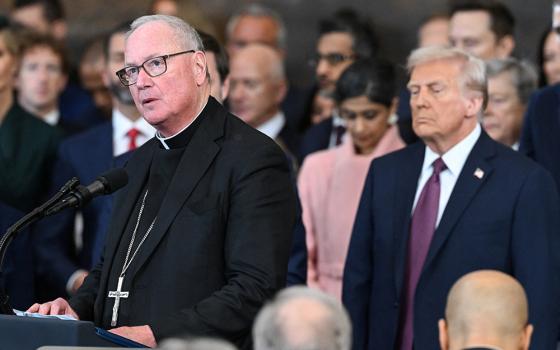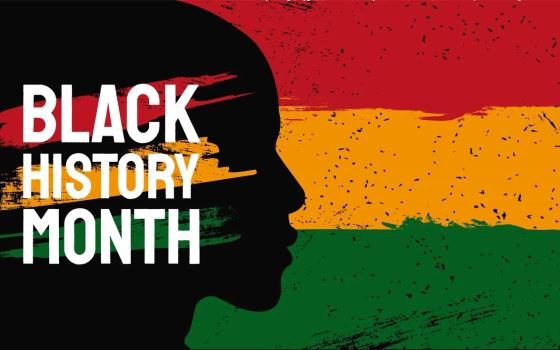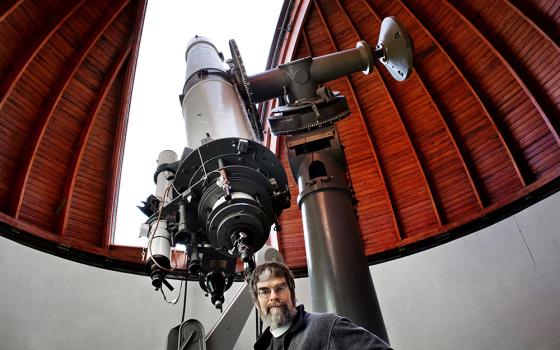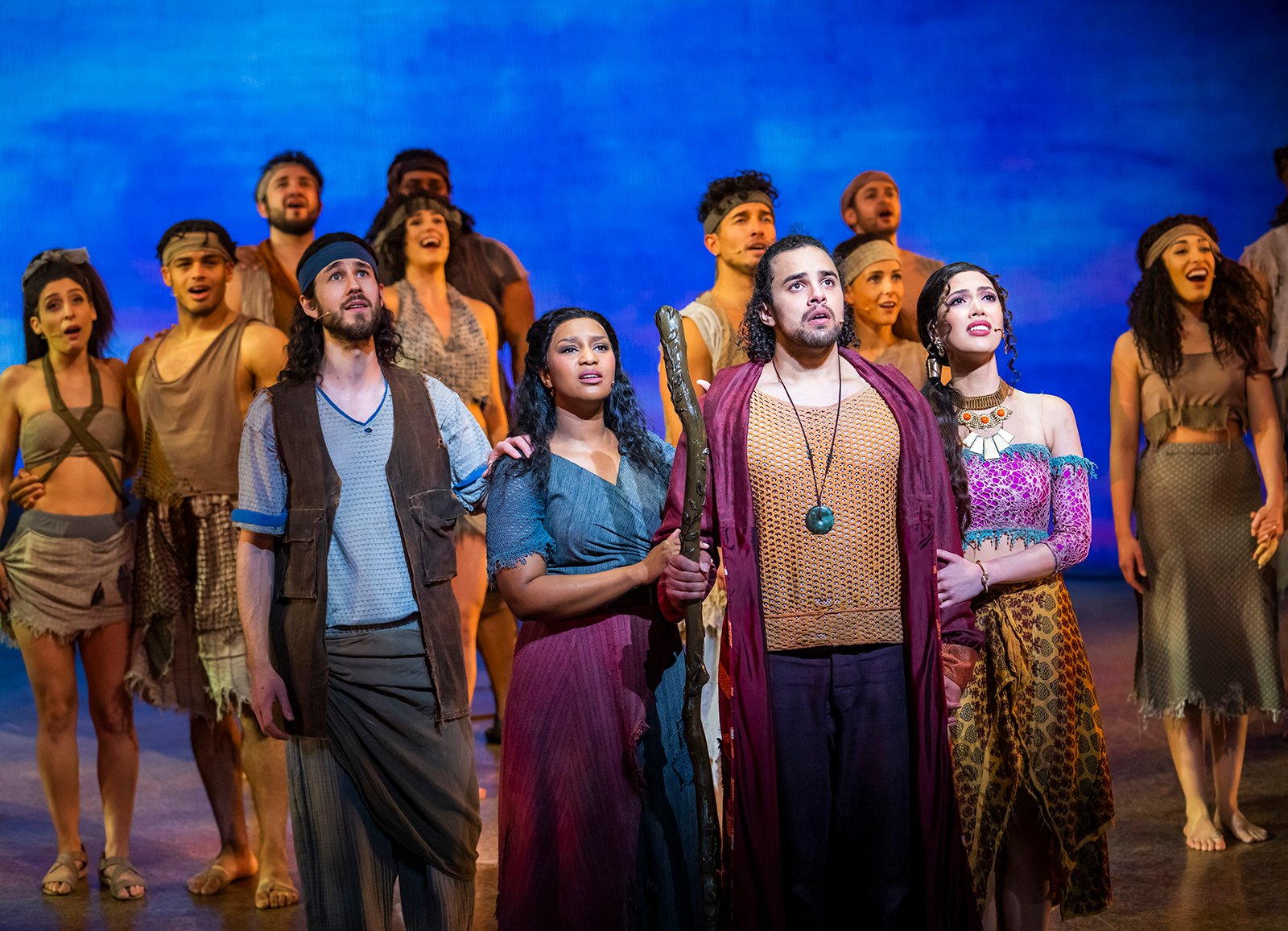
The company of “The Prince of Egypt: The Musical" performs at Dominion Theatre in London in 2021. (RNS/Courtesy photo)
Over two decades since DreamWorks’ widely acclaimed 1998 animated movie "The Prince of Egypt" wooed religious and nonreligious viewers alike, a live-action staged version debuted on streaming platforms in December.
With a book by the film’s original screenwriter, Philip LaZebnik, and 10 additional songs from multi-Grammy and Academy Award-winner Stephen Schwartz ("Wicked," "Godspell"), the musical adaptation features the same sweeping storyline, iconic characters and beloved songs of the original film. But the story emerges afresh in a new art form, where dancers embody a churning Nile River, convulsing desert sands and the rippling flames of the burning bush, at choreographer Sean Cheesman’s direction.
The adaptation also makes room for viewers to sit in the tragic moments of the Exodus narrative, featuring an almost existential Moses grappling with the death of Egypt’s firstborn sons. Filmed by Universal Studios International in December 2021 at the West End’s 2,000-seat Dominion Theatre in London, the show will be available to rent or buy on YouTube, Xfinity, Prime Video, Apple TV and more. Director Scott Schwartz answers questions about the West End production almost a decade in the making. This interview has been edited for length and clarity.
RNS: What were some of the challenges and opportunities of adapting this film for the stage?
Schwartz: It was such a wonderful opportunity because it’s just a fantastic film. And it has an amazing score, and it has these great central characters, and it’s an iconic story. I mean, my last name is Schwartz, so as I was growing up, we told the story of Moses and celebrated Passover. So to get to tell this story in a fresh, contemporary way on stage was an amazing opportunity.
I think the challenge is, the show is both massive because it’s dealing with an entire people and these major events which are central to all Western religions, and also these geopolitical events. But it’s also a very intimate and very human story. So how to balance the epic scale of this story with these detailed, complicated human relationships was a challenge. But also a wonderful challenge.
Advertisement
You mentioned hearing the story of Passover growing up. Do you have any personal spiritual worldview that informed your approach to directing this show?
What I wanted to do as the director was tell the story for people who are believers and also for people who are not believers. I wanted to imbue the story with as much humanity and as much human truth as possible and honor the story as told in the Bible, but also as told in the DreamWorks animated feature, so you could bring your own set of beliefs to it. And that was really my approach as director.
The cast who voiced the characters in the original film included many acclaimed actors, but they were almost universally white. When it came to casting for the West End production, how did you and your team consider race and ethnicity?
We felt that was very, very important. And we also were creating the show in a different time than the movie was originally created. One of the things that’s beloved about the movie is there are characters on the screen who are of different ethnicities, and different races than maybe a lot of animated features up until that time had been on screen. And so we really wanted to embrace that, and embrace the truth of, what would the racial and ethnic backgrounds of these people be?
We tried to cast many actors from very diverse backgrounds, with a focus on actors who had Northern African and Egyptian backgrounds. But we also, of course, wanted to cast actors of Jewish heritage because the story is also a Jewish story. And because this story is so central to cultures all around the world, we also had actors from all over the world. So we tried to find a balance, but we were really proud of where we ended up.
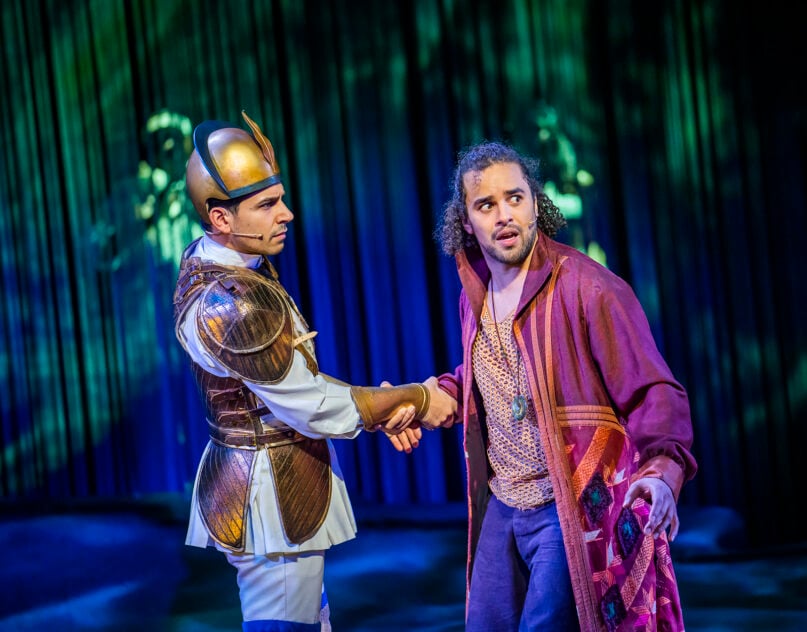
A scene from “The Prince of Egypt: The Musical” at Dominion Theatre in London in 2021. (RNS/Courtesy photo)
One of the most distressing elements of the Moses story is the death of Egypt’s firstborn sons. Can you talk about your approach to staging this moment?
It’s a central moment in the story that, in our telling of it, is devastating to Moses. Even though it allows Moses to achieve what God has asked him to do, which is to free the Hebrew people, it comes at a terrible cost because all of these babies die, and the child of his brother Ramses dies. And so handling that moment, we wanted to do it in a way that was very emotional for the audience, but also that built on this theatrical style we created for the show which asks the audience to use their imagination in filling in some of the gaps. So I’m not going to give it away, but we tried to do that.
But then that moment is followed by Moses’ reaction to this horrible devastation that’s been wrought, kind of by him, even though he didn’t intend it to go the way it did. And he has this moral crisis of, was it all worth it? And he says, for the rest of my life, I’m going to have to live with this. How can I do that? And I think to allow this famous figure of Moses to go into his own human emotions, and for the audience to get to experience, what would this be like to actually have to live through? It’s one of the emotional highlights of the show. And then in our production, it motivates the very famous Academy Award-winning song "When You Believe."
The show also includes a new moment of reconciliation between Moses and Ramses. What was the thought process behind including that scene?
I think in the end, the show is the story of the relationship between Moses and Ramses as brothers. It’s one of the things that makes the show moving and fun, because of the energy and humor in their relationship. And I think in the end, even though they can’t continue to live as brothers in the way they did when they were young, even though the world has pushed them apart physically and emotionally and culturally, we wanted to say that they still love each other, and they still come to see the other person in a way they didn’t at the beginning of the show. That journey of maturation, that journey of how the relationship between these two brothers evolves and falls apart and comes into conflict, but ultimately has reconciliation, I think is an important part of the message of the show.
What message might the show have to offer viewers now, over two decades after the film’s initial release?
I think the show is ultimately about people trying to deal with events and situations and changes in the world that are larger than themselves. And I think we are all facing a world where there was a pandemic, there are wars happening, and whatever side you may be on in any of these conflicts, they are overwhelming at times. And the show tries to deal with, how do we as human beings take action? How do we have agency? And how do we accept there are some things we can’t control? And how do we still put good into the world under those circumstances, or try to do good?
I think that’s an essential question we’re all struggling with right now. So I think the story is very timely. Of course, there is a conflict going on in the Middle East right now. And I think the show can’t help but make people think about that. But I think the show is about humanity. It is about the Hebrew people. It’s about the Egyptian people. It’s about people in conflict and how, as human beings and family members, and partners and friends, can we try to navigate these conflicts that can seem out of our control?
